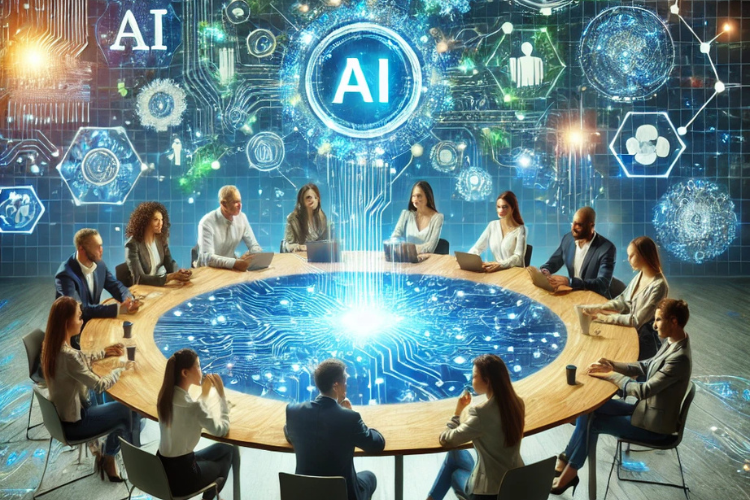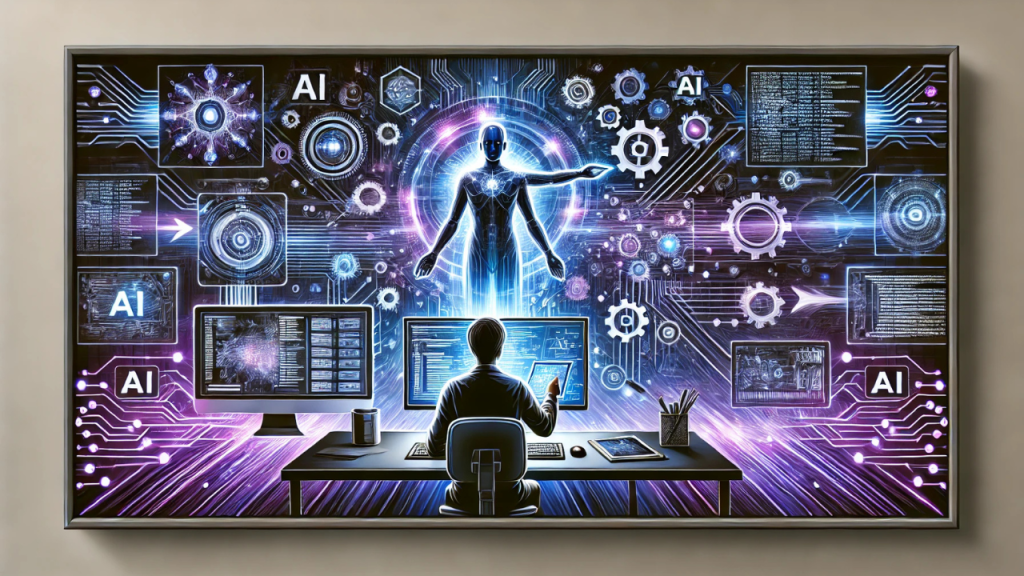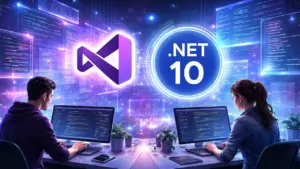Artificial intelligence (AI) is reshaping industries at an unprecedented pace, and software development is no exception. The tech world is buzzing with excitement as AI becomes a valuable ally for developers. But contrary to fears, AI isn’t here to replace developers—it’s here to enhance their potential.
This blog explores five critical ways AI is transforming the role of developers. From automating mundane tasks to unlocking creativity and boosting efficiency, here’s how AI is shaping the future of software development.
1. AI Augments, Not Replaces, Developers
The biggest misconception about AI is that it will take over jobs. However, for developers, AI serves as a partner, not a competitor.
AI is designed to handle repetitive and time-consuming tasks. Writing boilerplate code, debugging, or even formatting code—AI tools can take care of these. This allows developers to shift their focus to tasks that require creativity and problem-solving skills.
Think of AI as a turbocharger in your workflow. Instead of spending hours on routine jobs, developers can now concentrate on designing innovative solutions.
Example: Tools like ChatGPT or GitHub Copilot can auto-generate code snippets based on input, saving hours of work.
Impact: With less time spent on the mundane, developers can focus on creating more robust applications. The result? Better products, faster delivery, and a more engaging workflow.
2. Efficiency Boost with AI Tools
AI tools have redefined the way developers approach their work. By enhancing efficiency, they enable developers to produce high-quality software in less time.
AI-powered tools like autocompleters and intelligent debuggers streamline coding. They suggest the next line of code, identify errors, and even optimize performance. These tools significantly reduce the chance of human error.
For instance, platforms like DeepCode and Kite help developers write cleaner, error-free code. Debugging, which once consumed hours, now takes minutes.
Benefits:
- Faster turnaround times.
- Improved code quality.
- Reduced stress and workload for developers.
With AI, developers no longer need to struggle with endless debugging sessions. Instead, they can focus on designing scalable architectures and solving complex challenges.
3. Continuous Learning with AI
In the tech world, staying updated is not optional—it’s essential. AI helps developers stay ahead by personalizing their learning journey.
AI-driven platforms recommend resources tailored to the developer’s needs. Whether it’s a new programming language or the latest framework, AI ensures developers access the right materials at the right time.
How it works:
- Tools analyze your coding style and suggest improvements.
- They recommend tutorials, courses, and documentation relevant to your skill level and interests.
Example: Platforms like Coursera or LinkedIn Learning use AI to suggest personalized learning paths. These platforms track progress and adapt to the developer’s pace.
By continuously learning, developers can adapt to industry changes and improve their skill sets. This keeps them competitive in an ever-evolving market.
4. Enhancing Collaboration Through AI
Software development is rarely a solo journey. Collaboration is key to success. AI-powered tools are transforming how teams work together.
AI simplifies project management and enhances communication. From tracking tasks to summarizing meetings, these tools make teamwork seamless.

Examples of AI-powered collaboration tools:
- Slack with AI: Summarizes conversations and tracks team decisions.
- Jira with AI integrations: Predicts project completion timelines and flags risks early.
- Notion AI: Generates quick project overviews and meeting summaries.
These tools ensure everyone on the team stays aligned. Miscommunication, which often derails projects, is minimized.
Impact:
- Faster decision-making.
- Streamlined workflows.
- Cohesive project execution.
AI not only boosts productivity but also creates a more harmonious work environment. Teams can focus on creativity instead of navigating complex coordination issues.
5. AI as a Catalyst for Growth and Innovation
AI is a game-changer for developers who want to innovate. It opens new possibilities and empowers them to tackle complex problems.
For instance, AI can analyze vast datasets to provide actionable insights. Developers can use these insights to design smarter applications.
Real-world applications of AI in development:
- Predicting user behavior for personalized app experiences.
- Automating cybersecurity protocols.
- Enhancing accessibility features in software.
Instead of viewing AI as a threat, developers should see it as a growth enabler. By embracing AI, they can push the boundaries of what’s possible in software development.
Impact: Developers equipped with AI tools are better prepared for the future. They can innovate faster and create solutions that were once unimaginable.
Conclusion
The rise of AI is not a threat to developers—it’s an opportunity. By automating repetitive tasks and enhancing learning, AI empowers developers to achieve more in less time. It improves efficiency, boosts collaboration, and fosters innovation.
The tech industry is evolving rapidly. Developers who embrace AI will not only stay relevant but also thrive in this new era. The key is to integrate AI seamlessly into your workflows and view it as a tool for growth.
AI isn’t replacing developers; it’s making them more powerful. The future of tech belongs to those who can leverage AI’s potential to create better products and solve bigger problems. For more insights into the evolving tech landscape and AI’s impact, check out resources on StartupHakk, where innovation meets knowledge.
So, are you ready to embrace the AI revolution in software development?




